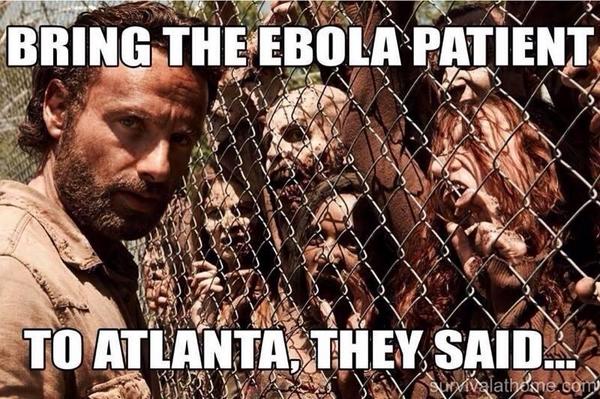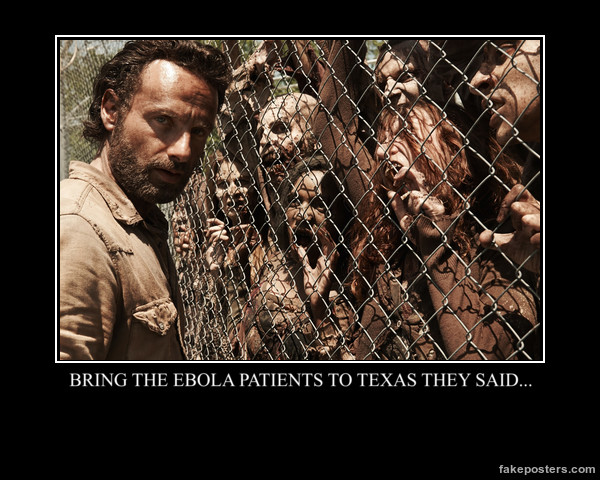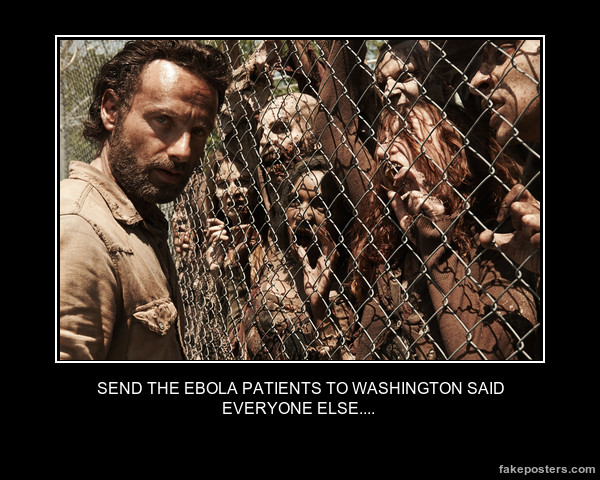The Ebola virus is now killing people by the hundred in the small, impoverished states of Sierra Leon, Liberia and Guinea. The way things are going, it could soon be by the thousand, and by the tens of thousand. Local health systems are being overwhelmed, in spite of the incredibly courageous work of NGO medical volunteers and local health workers. Being a viral disease, it is not particularly surprising that there is no actual cure for Ebola (there is no actual cure for the common cold, either). More surprising, perhaps, is that there are no means of immunization. This disease did not emerge from the jungle just yesterday; the first recorded case dates from what is now South Sudan in 1976. Depending on the strain, mortality among those infected with Ebola can range, untreated, from 70 per cent up to about 90 per cent. The only known treatment is isolation, rehydration, and hoping that the patient’s immune system will fight back successfully. Otherwise, the victim will suffer huge superficial blisters (similar to plague sores), severe bleeding from just about every orifice of the body along with crippling headaches and fever, and eventual death through the breakdown of vital internal organs. This may take only days.
Some accuse western states of over-reaction to the possibility (or reality) of Ebola arising on their territory. This criticism may to some extent be justified. The conditions favouring the spread of Ebola in West Africa - unclean water supplies, people being forced to live cheek-by-jowl in primitive conditions, basic medical infrastructure, poor education and so on - are generally not present in the West. While the export of Ebola to the West is inevitable to a limited extent, fingers crossed, we should be able to handle it. The real question is why, given that we knew that this was a virus (and have known since 19760; that we know that most viral diseases are virtually or actually impossible to cure; that there was no known means of inoculation against this virus; and that we have long known that the thing was a very effective killer; why was more effort made since 1976 at least to develop antivirals effective against this plague, and why. at least, more effective isolation and palliative measures were not developed ? Of course we know the answer. This was a little plague, plying its trade among the fruit bats and monkeys of far-off Congolese jungles, killing small numbers of fruit bats, monkeys and of course native humans in that far-off place. There was no priority, and no money, in addressing this disease. Even as it is, it is likely that our advanced Western medical technology and well-developed sanitary systems will enable us to contain or even prevent any significant outbreaks of the disease in the West. Little consolation to our brothers and sisters in West Africa, who are confronted not only by the threat of the disease, but by the economic disaster that is likely to result from its sudden and extensive expansion in their space. Makes one a bit ashamed to be a member of what one notable atheistic scientist describes as “a species of intelligent monkeys”.
In the longer term, our own relative safety in relation to Ebola as now known may not be such good news. Already, there are four known strains of Ebola virus. We evolve through generations averaging 30 years in duration; bacilli and viruses have a generational turnover of days or even hours. This is why we are faced with the problem of antibiotic resistance to new strains of bacilli, and the need to concoct new influenza “jabs” every year; bacilli and viruses have vastly greater opportunity to adapt and evolve than do we. It is all too possible that the end for Humanity (or, at least, for our present civilization) will come, not through nuclear war or global warming, but through the development of “superplagues” to which we can find no answer in good time. How, one might ask, would we deal with an Ebola mutation capable of transmission in the same manner as its cousin-virus, influenza ? The 'flu is bad enough, but …
It is not just a matter of “human” viruses. Coincidentally (and no attempt was being made to suggest a link with Ebola) I just recently heard a report of a family of viruses spreading among frogs, toads and other amphibians in rainy northern Spain, the symptoms of which are strikingly similar to Ebola in humans. There is some evidence that this “family of viruses” may have developed a mutation that attacks snakes and lizards. Allowing for the wonders of capitalism and the pharmaceutical industry, we really cannot afford to ignore obscure little plagues in places far, far away. Even animal ones. Otherwise, it seems only a matter of time before they mutate into a form that can come and get us. Will this be noted by the cigar-puffers at the head of our pharma giants ? I doubt it. Yours from the Plague Hospital, expiring, JR.:mad:





